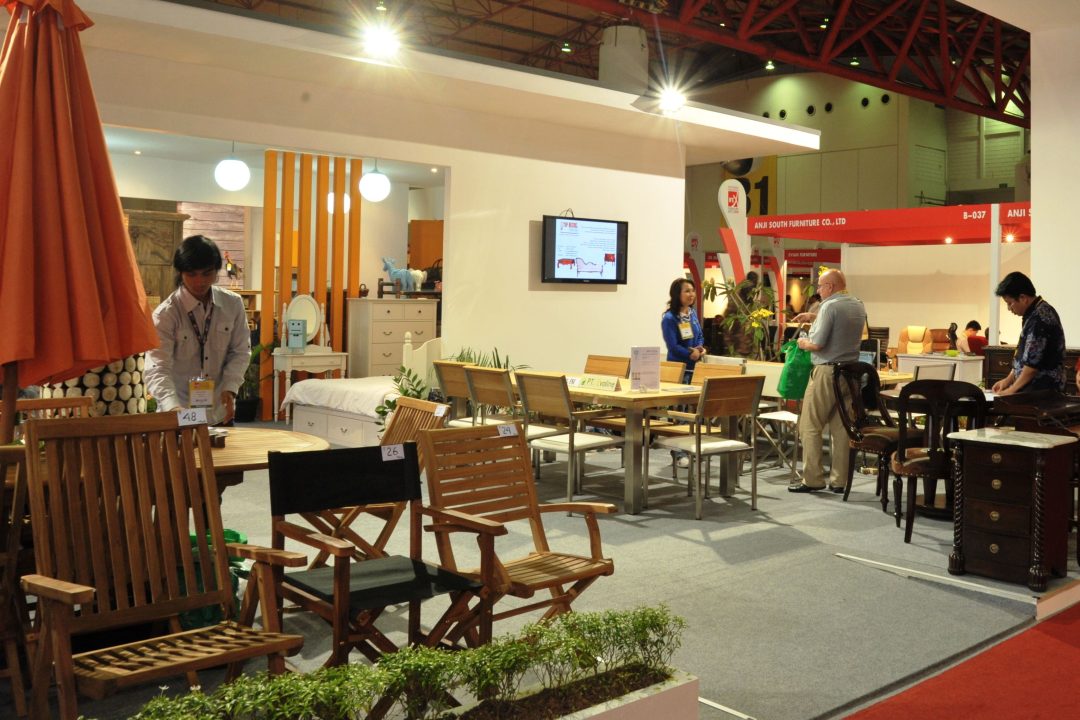Why Indonesia Furniture Industry & Exporters Are Top Market Leaders
Did you know that Indonesian furniture is a global hit? It’s a popular choice in homes and offices across more than 80 countries. It’s amazing how these small workshops have grown into global leaders. They’ve shown incredible skill in manufacturing and a real knack for business.
The Indonesian furniture industry is a huge success. For many years, skilled craftspeople in places like Jepara and Bali have made beautiful furniture. They work with famous designers from all over the world. This mix of traditional skills and modern ideas creates unique and stunning pieces.

Understanding Indonesia’s Furniture Industry Dominance
It’s gone from small, local workshops to big players on the world stage. This happened because of years of careful planning. Now, Indonesian companies sell a lot of furniture in many places, like North America, Europe, and Asia.
Traditional furniture-making hubs like Jepara have evolved into modern manufacturing centers, blending artisanal skills with industrial efficiency.
Local producers leverage abundant natural resources and skilled craftsmanship to maintain competitive advantages. This industry thrives on teak forests and abundant rattan resources. Dedicated manufacturing areas enable both mass production and the crafting of custom-designed furniture.
Indonesian furniture manufacturers blend time-honored craftsmanship with modern production techniques. Investments in technology and training improve efficiency and artistry in woodworking. This strategic mix strengthens the sector, helping companies meet growing global demand.
Indonesian companies are good at what they do. They make quality products, are always coming up with new ideas, and their prices are hard to beat. The industry benefits from a skilled workforce, sustainable materials, and advanced logistics. Indonesian manufacturers gain traction in global markets for ergonomic, bespoke, and eco-friendly furniture.
Production Innovation & Quality Standards
Modern factories across Indonesia integrate cutting-edge manufacturing with precise quality control systems. This maintains consistent product quality for large orders, meeting international buyer demands. By balancing handcrafted techniques with automated processes, manufacturers maintain efficiency without sacrificing detail.
Key quality measures include:
- Rigorous inspections at multiple production stages.
- Custom design services to accommodate unique client needs.
- Partnerships with global brands to refine product development.
Working with other countries has helped Indonesian furniture companies be more flexible. This means they can now make things for many different kinds of customers. They can make fancy furniture, chairs that are good for your back, or even everyday furniture for most people. The furniture industry in Indonesia is all about being able to change and come up with new ideas.
Resource & Supply Chain Management
Material sourcing strengthens Indonesia’s position as a responsible furniture exporter. Forestry programs support long-term timber, rattan, and bamboo availability. Strong partnerships with local farmers and hardwood suppliers improve supply chain stability. This commitment to sustainability enhances the industry’s reputation in ASEAN and beyond.
Indonesian manufacturers benefit from government support, foreign direct investment, and international trade partnerships. These factors bolster the industry’s ability to scale operations and expand into emerging markets.
Market Response & Adaptation
Adaptability defines Indonesia’s furniture sector. Businesses adapt sales and marketing strategies to meet diverse customer demands. This applies across various sectors, including Indonesian furniture, luxury showrooms, home stores, and major e-commerce platforms.
Collaborating with international partners offers valuable consumer insights for Indonesian manufacturers. This feedback drives continuous improvement in design, material selection, and product comfort. Indonesian manufacturers possess the capacity to compete in the global market. This involves utilizing materials, leveraging skilled labor, and implementing cutting-edge furniture design methodologies.
Building Sustainable Global Leadership
Success in the global furniture market hinges on consistent quality and adaptability. Indonesian manufacturers enhance their competitiveness by investing in practices and operational efficiency.
Quality Assurance & Compliance
Strict quality control measures ensure that exported furniture meets international standards. Manufacturers hold certifications, covering:
- Environmental sustainability
- Ethical production methods
- Compliance with global trade regulations
Routine audits verify adherence, reinforcing trust among importers, retailers, and multinational brands.
Sustainability initiatives play a key role in market positioning. Companies implement:
- Eco-friendly production techniques
- Responsible material sourcing
- Efficient waste management systems
These efforts attract eco-conscious consumers and align with international policies.
Operational Excellence
Modern inventory management optimizes efficiency and reduces costs. Digital tracking systems enhance:
- Material usage monitoring
- Production consistency
- Waste reduction strategies
Smart procurement strategies ensure stable supply chains and sustained profitability.
Reliable global logistics simplify exports. Key strategies include:
- Partnering with shipping firms for dependable delivery
- Establishing warehouses in strategic locations
- Advanced systems provide effortless order tracking.
These efforts strengthen trade performance and boost relationships with international distributors.
Customer Success Framework
Strong business relationships drive industry growth. Indonesian exporters prioritize:
- Clear communication
- Regular buyer updates
- Personalized customer service
Cross-cultural expertise enhances global partnerships. Training in international business practices improves:
- Negotiation effectiveness
- Market adaptability
- Long-term collaboration
Investment in customer support strengthens loyalty. Responding quickly to inquiries and staying engaged with international buyers is crucial. This not only sustains demand but also ensures they return for future business.
Long-Term Growth & Market Expansion
Indonesian furniture makers collaborate with global buyers to expand exports and strengthen their brands. They create sofas, teak sun loungers, and decor that international customers love by tracking market trends.
Diversifying into tableware, textiles, and hardwood furnishings attracts retailers, hotels, and home stores. These strategies boost revenues, support SMEs, and drive economic growth.
By using the skills of experts and creating strong trade connections with other countries, Indonesia has become a leading force in making furniture. This helps Indonesia stay ahead of other countries in the global furniture market.


